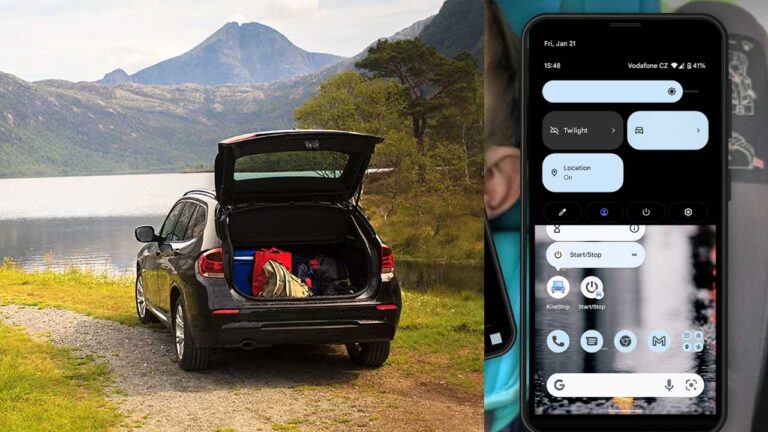Do you dread long car rides because of that queasy feeling? Car sickness can turn a pleasant journey into a nightmare. But don’t worry, you can take control and enjoy your travels again. In this guide, we’ll dive into practical strategies and tips to help you overcome car sickness, revolutionizing your travel experience. Get ready to say goodbye to nausea and hello to comfortable car rides!
The energy of Angel Numbers can guide you towards a fulfilling life. Understanding these numbers is one thing. But, you need practical steps to harness their energy. Below, you will find actionable steps. These will help you align with the energy of Angel Numbers.
Understanding Car Sickness
What Causes Car Sickness?
Car sickness happens when your brain gets confused by conflicting signals. Your eyes see the car moving, but your inner ear, which helps with balance, might sense something different if you’re looking down or focusing on a stationary object. This confusion can make you feel dizzy and nauseous.
Common Symptoms
Car sickness symptoms can vary but often include:
- Nausea
- Dizziness
- Sweating
- Vomiting
- Headaches
- Fatigue
Recognizing these symptoms early can help you take action before they worsen.
Strategies to Overcome Car Sickness
Sit in the Front Seat
Sitting in the front seat can help reduce car sickness. It gives you a clearer view of the road, helping your brain match the motion your eyes see with what your inner ear senses.
Look at the Horizon
Focusing on the horizon or a distant point can stabilize your visual input, reducing the conflicting signals that cause nausea. It helps your brain align what you see with the motion your body feels.
Take Breaks
Frequent breaks can make a big difference. Stop the car every couple of hours to stretch, walk around, and get some fresh air. This can help reset your body’s balance and reduce symptoms.
For long-distance trips where you don’t want to drive, using an Auto Delivery Service like Shiply can save you the hassle and ensure your car arrives safely at your destination.
Stay Hydrated
Dehydration can worsen car sickness. Drink plenty of water before and during your trip. Avoid alcohol and caffeine, as they can dehydrate you.
Avoid Heavy Meals
Eating a heavy meal before a car ride can make car sickness worse. Opt for light, easy-to-digest snacks and avoid greasy or spicy foods.
Use Ginger
Ginger is a natural remedy known to help with nausea. You can take ginger in various forms, such as ginger tea, ginger ale, or ginger supplements.
Try Acupressure
Acupressure wristbands apply pressure to a specific point on your wrist believed to help relieve nausea. These bands are affordable and can be found at most drugstores.
Keep Cool
A cool, fresh breeze can help reduce nausea. Crack a window or direct the air conditioning towards your face. Keeping the car well-ventilated can make a big difference.
Listen to Music or Audiobooks
Distracting your mind with music or an interesting audiobook can help take your focus off the queasiness. Choose something calming and engaging to keep your mind occupied.
Use Essential Oils
Essential oils like peppermint or lavender can help soothe your senses and reduce nausea. Use a few drops on a handkerchief or in a portable diffuser for a calming effect.
Over-the-Counter Remedies
Antihistamines
Antihistamines like Dramamine or Benadryl are commonly used to treat car sickness. They can be very effective but may cause drowsiness, so use them cautiously if you’re driving.
Non-Drowsy Medications
If you prefer not to feel sleepy, look for non-drowsy options like meclizine. These can help manage your symptoms without making you tired.
Motion Sickness Patches
Motion sickness patches are another option. They release medication slowly over time and can be effective for longer trips. Always follow the instructions and consult with a doctor if you’re unsure.
Tips for Kids with Car Sickness
Plan Travel Around Nap Time
If possible, plan your trips around your child’s nap time. Sleeping can help them avoid feeling sick during the ride.
Keep Them Engaged
Engage kids with car-friendly activities like audiobooks, music, or games. Keeping their minds occupied can help distract them from feeling queasy.
Light Snacks and Hydration
Provide light snacks and water to keep them comfortable. Avoid giving them heavy meals or sugary drinks before the trip.
Use a Car Seat Cover
In case of accidents, using a removable car seat cover can make clean-up easier. It’s always good to be prepared.
When to Seek Medical Help
Persistent Symptoms
If car sickness symptoms persist despite trying these strategies, consult a healthcare professional. They can offer additional treatments or investigate other potential causes.
Severe Reactions
Severe reactions, such as frequent vomiting or extreme dizziness, should be addressed by a doctor. Don’t hesitate to seek medical help if you’re concerned.
Medication Side Effects
If you’re using medication to manage car sickness and experience side effects, talk to your doctor. They may be able to recommend alternative treatments or adjust your dosage.
Conclusion
Car sickness doesn’t have to ruin your travel experiences. With the right strategies and remedies, you can overcome nausea and enjoy your journeys. Whether it’s sitting in the front seat, taking breaks, using natural remedies, or trying over-the-counter medications, there’s a solution that can work for you. Remember to keep your trips fun and comfortable, and you’ll soon find yourself looking forward to car rides again.
